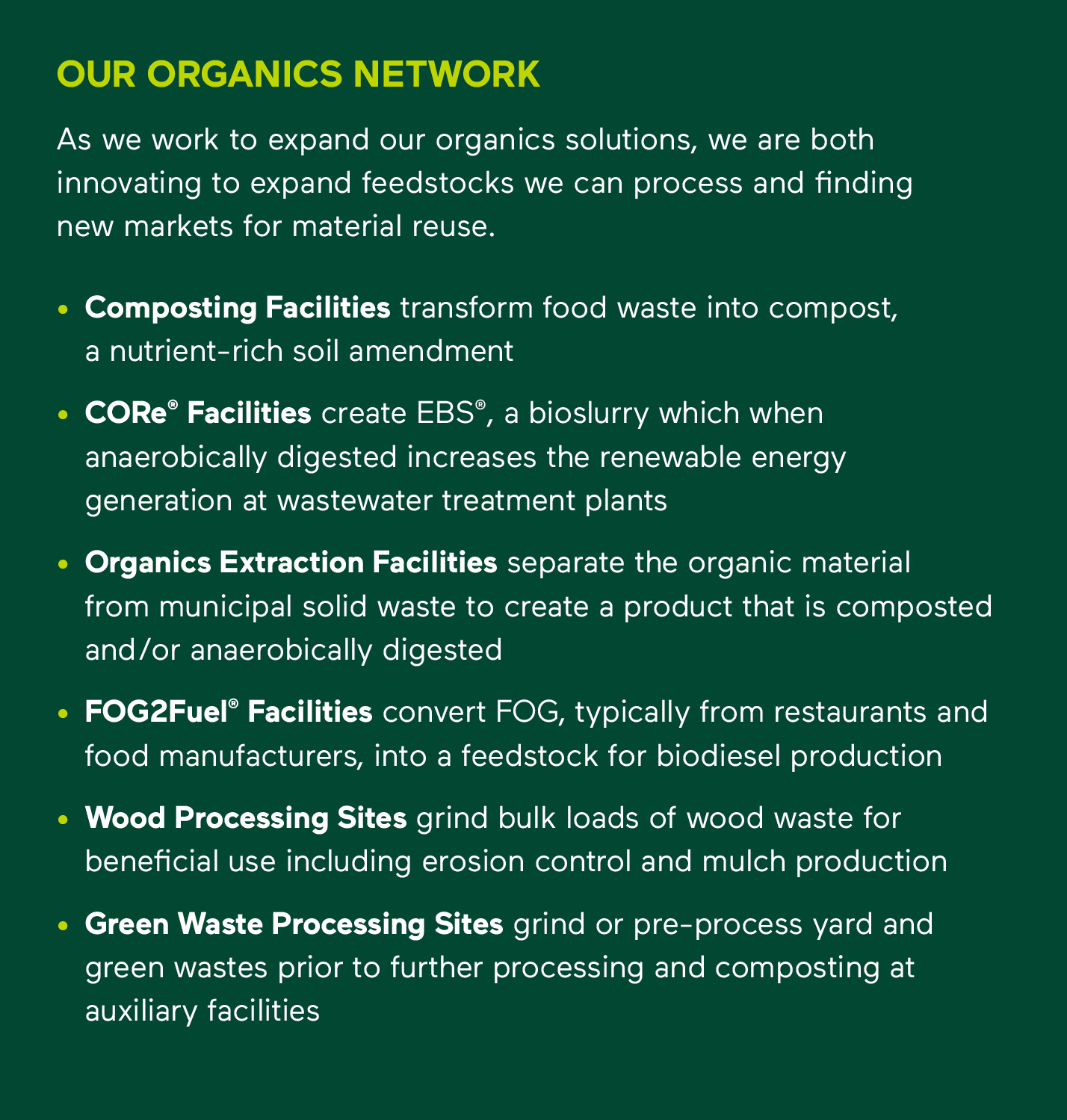
- Sustainability A-Z
- Organics
Organics
The U.S. Environmental Protection Agency (EPA) estimates that yard trimmings and food waste account for more than 33.7% of total municipal solid waste1. WM also estimates that organics make up around a third of the material by weight that we manage for our customers. When factoring in the energy used to grow, process and ship food, as well as the emissions released when it decomposes, food waste has the potential to contribute significant greenhouse gas emissions throughout the value chain.
While the concept of a circular economy is most often applied to manufactured goods, it also applies to organics, including food. The benefits of managing food and yard waste at end-of-life are significant — and businesses and governments are increasingly addressing these opportunities.
Preventing food waste upstream benefits the environment in terms of emissions reduction and helps communities in need by providing nutrition that would otherwise go unused. Where possible, WM helps prevent food from being wasted and encourages its redistribution through local food donation programs. For other organic materials, we continue to invest in new or expanded programs for managing these materials to their most beneficial use.
As we experience growing demand from customers looking to meet sustainability goals and adhere to increasing regulatory requirements around food waste diversion, we are also strategically growing our organics processing capabilities. By building new facilities, investing in technological innovation and completing several recent acquisitions, we are driving organics solutions that can benefit communities by diverting materials from landfills, reducing emissions and enriching soil.
